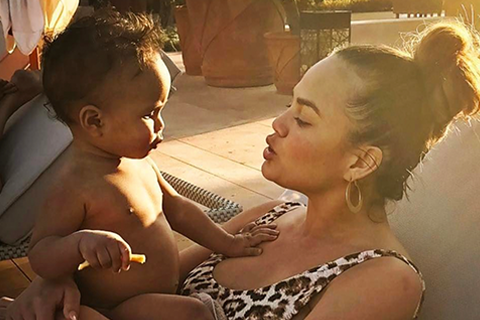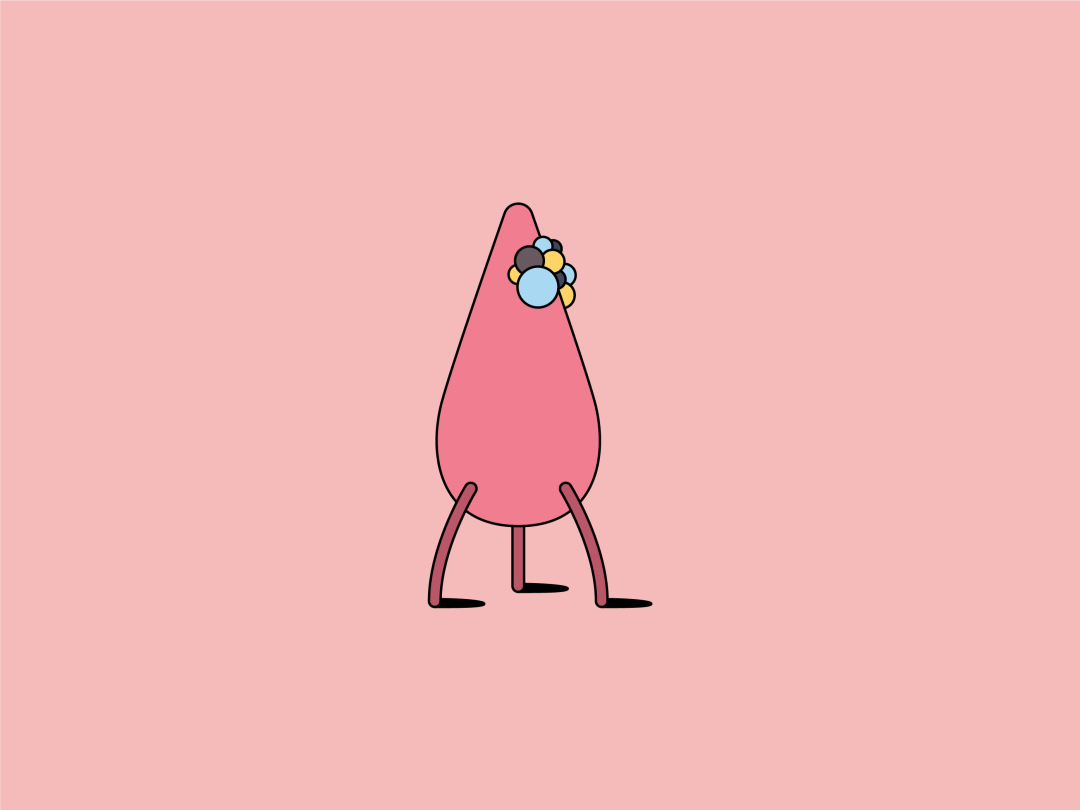Chrissy Teigen Opens Up About Her Postpartum Depression
thinx archive
·5 min read

by Mia Abrahams | 03/08/2017
As purveyors of period-positive underwear, we at THINX know all too well that women’s health issues are too often taboo topics, shrouded in mystery, and not discussed in the open. This week, everyone’s fantasy bff Chrissy Teigen shone a light on one of the biggies — postpartum depression.
Chrissy, as she points out herself, appears to have like, the best life ever (#goals). She’s married to John Legend, has a beautiful baby girl Luna, she’s a Sports Illustrated cover girl, TV show host, and NY Times Bestselling cookbook author. And despite all this being totally unrelatable, her humor and candidness, especially on social media, means she is goddamn likeable to boot! (eg. Drunk snapchatting after The Grammys, getting caught taking a nap on John’s shoulder during the Oscars; having a truly funny twitter feed, sample: “I like to send John nudes and then say “sorry wrong person”" ) But, as is often the case, there is a lot more going on than meets the eye.
I encourage you to read Chrissy’s beautiful essay in full here, but her insight into the silence around postpartum depression is particularly moving:
“Before this, I had never, ever—in my whole entire life—had one person say to me: “I have postpartum depression.” . . . I also just didn’t think it could happen to me. I have a great life. I have all the help I could need: John, my mother (who lives with us), a nanny. But postpartum does not discriminate. I couldn’t control it. And that’s part of the reason it took me so long to speak up: I felt selfish, icky, and weird saying aloud that I’m struggling. Sometimes I still do. . . .
I’m speaking up now because I want people to know it can happen to anybody and I don’t want people who have it to feel embarrassed or to feel alone. I also don’t want to pretend like I know everything about postpartum depression, because it can be different for everybody. But one thing I do know is that—for me—just merely being open about it helps. This has become my open letter.”
So, to honor Chrissy’s openness and to continue opening up the conversation around women's mental health, let’s take a look at how you can recognize the warning signs of postpartum depression in a friend/cousin/sister/aunty/yourself.
What are the symptoms of postpartum depression?
Postpartum depression is common. It affects 1 in 9 women according to the CDC. Many women feel emotional after childbirth due to hormones goin’ haywire, but postpartum depression symptoms are more than the usual “baby blues”.
Karen Kleiman, director of the Postpartum Stress Center, says that women who are dealing with postpartum depression may experience overwhelming sadness, feelings of hopelessness, worthlessness, and low self-esteem, as well as intense irritability, anger, rage, and acute anxiety and panic attacks. Women can also have feelings of ambivalence about their baby or feel overly attached.
A woman with postpartum depression may cry a lot, be unable to concentrate, and lose her appetite (a loss of appetite signaled to food-lover Chrissy that something wasn’t quite right). As Chrissy mentions, isolation or not wanting to leave the house is also a big red flag, as is avoiding hanging out with people you love.
I think my friend/sister/cousin might have postpartum depression. What should I do?
First things first, let her know you are worried, ideally in face-to-face chat, but phone or text if that’s not possible. Postpartum can get worse with time, so encourage your friend to seek support. This could mean talking to their ob-gyn, child’s pediatrician, or someone else who can refer them to a therapist. Let them know that they can start to feel better within weeks if they seek treatment. Chrissy said that a month after taking her anti-depressants, she is a “different human”, and while she still has good days and bad days, she doesn’t *only* have really bad days.
It’s also key to just show up and be there for your friend. Bring over food, play with the baby, and show her you are there for her. Remind her that postpartum depression is not a reflection on her, she’s not being a bad mom, she is courageous for asking for help, and she is not alone. Postpartum depression is the *most* common complication of childbirth, but with support and help, things can and will get better!
by Mia Abrahams


